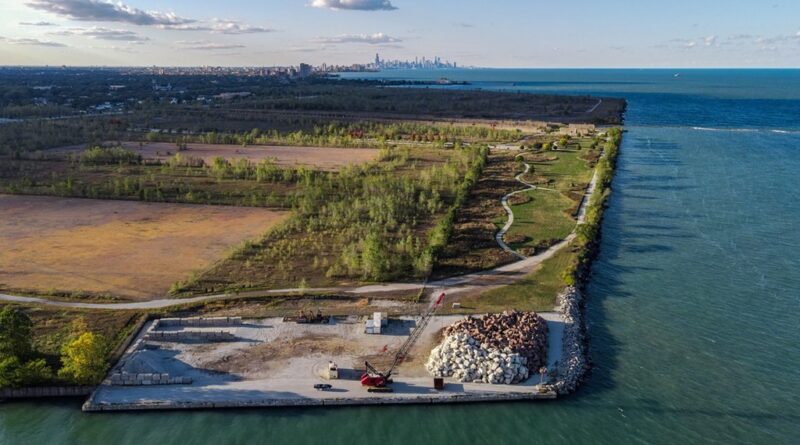Innovative Approaches: Quick Tips for Land Redevelopment
Are you a private lender or real estate investor looking to unlock the potential of land redevelopment? If so, you’ve come to the right place. Land redevelopment offers a world of opportunities for those willing to navigate its complexities with innovation and expertise.
In this article, we will share 10 quick tips and tricks that will empower you to master the art of land redevelopment and achieve remarkable success in your investment endeavors. With careful planning, thorough market research, and the ability to leverage cutting-edge techniques and partnerships, you can transform underutilized or undervalued land into highly profitable ventures.
Our tips and tricks cover every aspect of the land redevelopment process, from conducting feasibility studies to securing creative financing options, and from embracing sustainable practices to leveraging technology and data for a competitive edge.
Whether you’re considering repurposing industrial land, adapting historic buildings, or exploring the potential of undeveloped sites, these proven strategies will provide you with the knowledge and confidence needed to make informed decisions and maximize your returns. So, let’s dive into the world of land redevelopment and unlock its immense potential together.
1. Research and Analyze the Market: Uncover Hidden Opportunities
Before diving into land redevelopment, it’s crucial to research and analyze the market thoroughly. Identify emerging trends, growth areas, and underserved markets.
Look for hidden opportunities that others might have overlooked. By understanding the market dynamics, you can make informed decisions about which properties to invest in and how to position them for maximum profitability.
2. Partner with Local Experts: Tap into Specialized Knowledge
Collaborating with local experts can significantly enhance your chances of success in land redevelopment. Engage professionals such as architects, engineers, real estate agents, and attorneys who have in-depth knowledge of the local regulations, zoning laws, and development processes. Their expertise will prove invaluable in navigating the complexities of the project and avoiding costly mistakes.
3. Conduct Feasibility Studies: Assess Viability and Potential
Before committing to a land redevelopment project, conduct thorough feasibility studies to assess its viability and potential.
Evaluate factors such as market demand, infrastructure accessibility, environmental considerations, and financial feasibility. This analysis will help you make informed decisions about whether to proceed with the project or explore alternative opportunities.
4. Secure Financing Options: Explore Creative Solutions
Land redevelopment projects often require significant capital. Explore various financing options available to you, such as traditional bank loans, private lending, joint ventures, crowdfunding, or public-private partnerships. Be creative in structuring your financing to optimize returns and minimize risks.
5. Formulate a Comprehensive Business Plan: Outline Your Strategy
A well-defined business plan is essential for land redevelopment success. Outline your goals, target market, development strategy, project timeline, and financial projections. Your business plan will serve as a roadmap throughout the project and help you stay focused on your objectives.
6. Embrace Sustainable Practices: Enhance Value and Appeal
Incorporating sustainable practices into your land redevelopment projects can enhance their value and appeal. Consider implementing energy-efficient designs, utilizing renewable resources, and incorporating green spaces.
Not only will this attract environmentally conscious buyers and tenants, but it can also lead to long-term cost savings and a positive impact on the environment.
7. Leverage Technology and Data: Gain a Competitive Edge
In today’s digital age, leveraging technology and data can give you a competitive edge in land redevelopment. Utilize advanced analytics tools, GIS mapping, virtual reality, and 3D modeling to analyze site potential, visualize project outcomes, and streamline decision-making processes.
Stay abreast of technological advancements and embrace innovative solutions that can optimize your operations.
8. Build Strong Networks: Foster Relationships and Collaborations
Networking plays a crucial role in land redevelopment. Build strong relationships with industry professionals, fellow investors, and potential partners.
Attend real estate conferences, join local real estate associations, and participate in networking events. These connections can provide valuable insights, potential joint ventures, and access to new opportunities. Collaborate with others in the industry to leverage their expertise and resources for mutual benefit.
9. Mitigate Risks: Perform Due Diligence and Risk Assessment
Risk management is essential in land redevelopment. Perform thorough due diligence, including title searches, environmental assessments, and legal reviews.
Identify potential risks such as zoning restrictions, easements, or encumbrances that could impact the project. Develop strategies to mitigate these risks and ensure compliance with regulatory requirements to protect your investment.
10. Monitor Market Trends: Adapt and Evolve
Stay updated on market trends and changes in the real estate industry. Economic, demographic, and social shifts can influence the demand for different types of developments. Continuously evaluate your projects and adjust your strategies accordingly.
Being adaptable and open to new opportunities will help you stay ahead of the competition and maximize your returns.

Examples of Quick Tips, Land Redevelopment in Action
Let’s explore a few examples that illustrate the power and effectiveness of implementing quick tips and tricks in land redevelopment:
- Example 1: Repurposing Industrial Land
- By conducting thorough market research and feasibility studies, an investor identifies an industrial area experiencing a decline in demand.
- Leveraging local experts, they assess the potential for repurposing the land into a mixed-use development that caters to the growing demand for residential and commercial spaces.
- Through innovative design, sustainable practices, and creative financing solutions, the investor successfully transforms the underutilized industrial land into a thriving community hub, maximizing both financial returns and community value.
- Example 2: Adaptive Reuse of Historic Buildings
- A private lender recognizes the potential of historic buildings in a revitalizing downtown area. They collaborate with local preservation experts and architects to restore and adaptively reuse these buildings for modern purposes.
- By embracing sustainable practices and incorporating the buildings’ unique architectural features, they create a trendy mixed-use complex that preserves the area’s historical charm while catering to the demand for unique office spaces, boutique shops, and upscale residences.
- This successful project not only generates substantial returns for the investor but also contributes to the overall revitalization of the neighborhood.
- Example 3: Innovative Use of Technology
- An investor embraces cutting-edge technology in their land redevelopment projects. By utilizing advanced analytics tools and data-driven decision-making, they identify emerging market trends and target specific buyer demographics.
- Virtual reality and 3D modeling enable them to showcase the potential of undeveloped land, allowing potential buyers to visualize their future homes or businesses.
- This tech-driven approach not only streamlines the sales process but also enhances transparency, builds trust with buyers, and differentiates the investor’s offerings in a competitive market.
These examples highlight the transformative power of implementing quick tips and tricks in land redevelopment. By adopting innovative approaches, leveraging local expertise, and staying abreast of market trends, private lenders and real estate investors can unlock the full potential of their land investments.
Master Land Redevelopment with Ease
Land redevelopment presents a wealth of opportunities for private lenders and real estate investors. By following these 10 quick tips and tricks, you can navigate the complexities of the process, maximize your returns, and create impactful developments.
Remember to research the market, collaborate with local experts, conduct feasibility studies, secure creative financing, and formulate a comprehensive business plan. Embrace sustainability, leverage technology, build strong networks, mitigate risks, and monitor market trends to stay ahead of the game.
By implementing these strategies, you’ll be well-equipped to master land redevelopment and achieve success in your investment endeavors.
Now it’s time to take action. Begin by selecting a land redevelopment opportunity that aligns with your investment goals and apply the tips and tricks discussed in this article. With careful planning, innovative thinking, and a proactive approach, you’ll be on your way to transforming land into thriving and profitable ventures.
Share your experiences and insights in the comments below. We’d love to hear about your own tips and tricks for successful land redevelopment!
